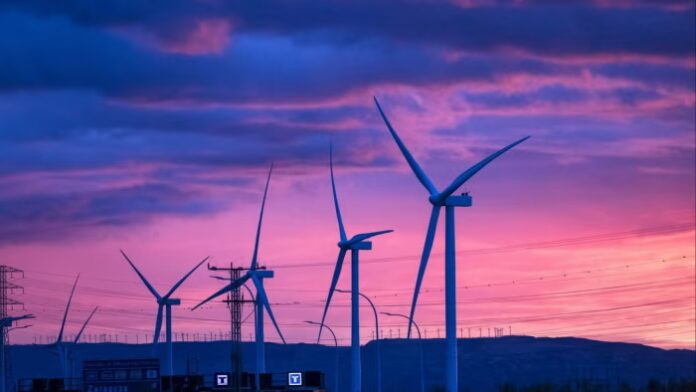Unlock the Editor’s Digest for free
Roula Khalaf, Editor of the FT, selects her favourite stories in this weekly newsletter.
The EU has pledged to work on clean energy and climate action with US local authorities and businesses rather than focusing on the federal government, after President Donald Trump called climate change “the greatest con job ever” and pushed American industry to drill for more fossil fuels.
The US, the world’s second-largest greenhouse gas emitter, pulled out of the UN’s Paris climate agreement for the second time this year and has rapidly cut back funding for clean energy, instead promising billions of dollars in subsidies to the oil and gas sector.
In a draft policy paper on climate diplomacy efforts seen by the Financial Times, the European Commission said it would “co-operate with the US in the clean energy transition and on clean technologies”, notably with “subnational entities, business and think tanks”.
The commitment comes in the face of US efforts to pressure the bloc into cutting back some of its most ambitious climate legislation, such as its deforestation law and its corporate sustainability due diligence directive, which orders large companies to unroot environmental and social abuses in their supply chains.
The demands have been met with some resistance in Brussels, which is already undertaking efforts to simplify its green regulations.
Several delegations from American states have visited Brussels in recent months to discuss initiatives, such as carbon pricing, as Democratic legislatures try to continue with efforts to combat climate change despite the policies of the Republican Trump administration.
The EU’s draft paper, due to be published on Thursday, sets out the ways in which the EU will use its diplomatic heft to advance the clean energy transition worldwide, including by helping countries establish their own carbon markets and using its development aid arm to invest in “large flagship projects” such as renewable energy plants in developing nations.
It also says that it will use its development aid programme to help countries cope with the effects of its carbon border tax, which businesses will have to start paying from next year and several major trading partners including India and China have criticised.
Funding would “help alleviate concerns raised on EU legislation as well as strengthen partnerships and support broader regulatory reforms”, the document said.
It also announced that the bloc would launch a “clean transition business council” to advise the commission on cleantech investment opportunities abroad and appoint a “special co-ordinator for the global clean transition” to similarly promote EU cleantech companies.
“We are being way more transactional in the way that we do business and the way that we do climate and diplomacy,” an EU official said.
The main objectives of the document were to set out how the EU would “help countries with the clean transition” but also how it would reduce its dependency on countries such as China for natural resources, the official said.
The EU has one of the most ambitious climate agendas in the world but is facing an increasing backlash from businesses and rightwing politicians who argue that the bloc has gone too far, too fast and that the level of green regulation is stifling growth.
Conservative lawmakers argue that the bloc, which accounts for 6 per cent of global emissions, must do more to encourage others to cut emissions at the same rate.
In a news conference last week, Manfred Weber, leader of the conservative European People’s Party, told journalists that China and Brazil “were not as ambitious as we would like to see them” when it came to their own climate goals.
The commission declined to comment on the document, which could be subject to change before it is presented.
Climate Capital

Where climate change meets business, markets and politics. Explore the FT’s coverage here.
Are you curious about the FT’s environmental sustainability commitments? Find out more about our science-based targets here
Source link





